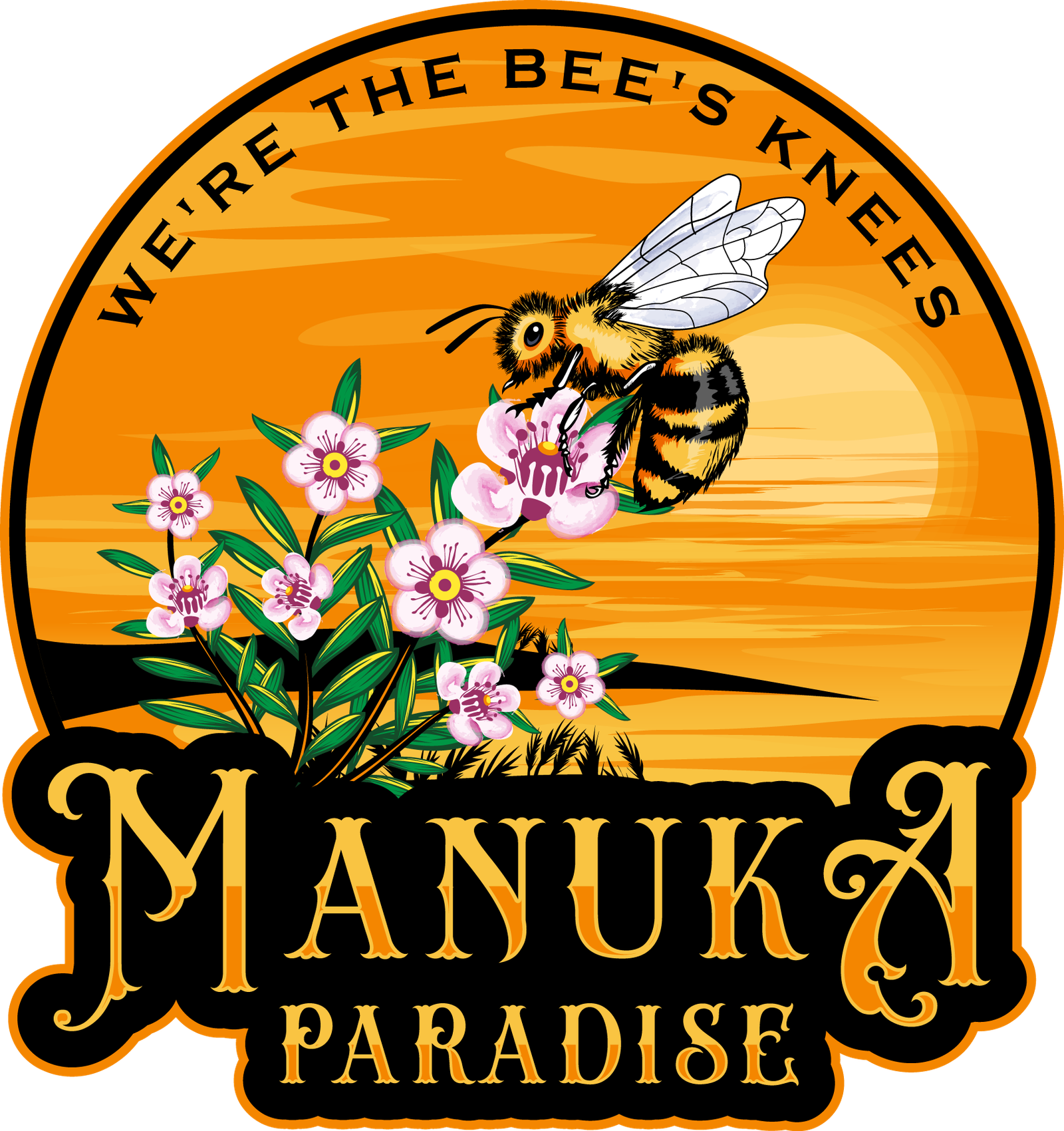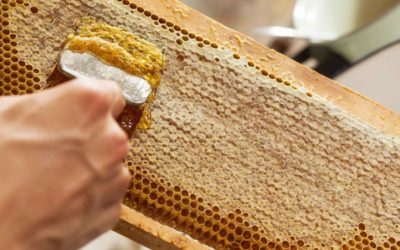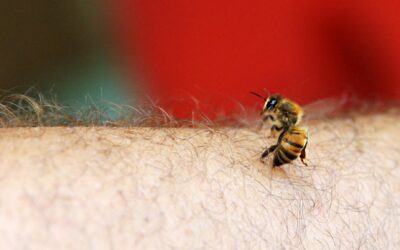Everything You Should Know About This Bee Product: Propolis
Propolis is another bee product that has many uses for humans. Propolis is known for having antibacterial, antiseptic, and anti-inflammatory properties. Find out more about how propolis came about, what it is and what are its uses in this article.
What is propolis?
Propolis is a sticky greenish-brown glue made by bees, who gather resins and sap from flowers and trees, and then combine them with their own secretions and beeswax. It is used by bees to seal openings and cracks in their beehive for protection, especially when their hives are situated on trees where ants and insects are common. These ants and insects will get entrapped within the sticky liquid when they try to enter the beehive. It is also used for preventing the bacteria of the carcasses of foreign invaders from spreading to the colony. Propolis is lined on the inner walls of the honeycomb to retain the temperature of the hive at 35 degree Celsius.
Composition of propolis
Propolis is made up of 50 percent balsam and resin, 30 percent wax, 10 percent essential oil and five percent pollen. As such, it is different from just pure tree sap as it is mixed with bee’s saliva and hence is more nutrient dense. Studies have found that propolis contains more than 300 compounds and all the known vitamins except vitamin K. Propolis also contains all 14 minerals required in the human body except sulfur. Hence, propolis is a highly beneficial bee product that humans use for a variety of uses.
Benefits of propolis
Propolis is commonly used by humans as it is known for its antiseptic and anti-bacterial properties. As a result, it is often used as a treatment for sore throat, ulcers, wounds, areas of inflammation and infection. It is applied on areas of bacteria growth or for the remedy of flu that is caused by viruses. Propolis may also help to keep cancer at bay, although it is not a sole treatment for cancer but rather, plays a complementary role to other cancer treatments. More specifically, propolis prevents cancer cells from multiplying and block the transmission of signals between the cancer cells. Propolis can also be used as a mouth wash to reduce pain and swelling after an oral surgery. Propolis contains flavonoids, which are compounds found in plants necessary for their defense and immune system. Flavonoids are antioxidant agents and hence propolis helps to prevent oxidative stress and cell damage.
History of propolis
Propolis has had a history of usage. Egyptians use propolis to embalm the corpses as they knew that propolis would reduce the decay of bodies. Greek and Roman physicians had used propolis as a disinfectant for mouth and wounds. In the 17th century, London recorded propolis as an official drug on its treatise of medical remedies. Propolis was also commonly used in Europe in the 17th and 20th century. In Italy, propolis was also used on the Stradivarius violins as violin varnish. Propolis was also used at the end of the 19th century during World War 2 as a remedy for tuberculosis. People in the Balkans also adopted propolis to treat their wounds, burns and sore throats for propolis’ antibacterial properties.
How to use propolis
Propolis comes in different forms, such as in tablets, pills, liquids, ointments or even as an ingredient in toothpastes. It is used in skincare as the antibacterial properties help to reduce bacterial acne. Since it is also anti-inflammatory, propolis helps to soothe the skin and prevent skin flaring and redness. As it has antioxidant properties, propolis helps to protect the skin from free radicals caused by external pollutants, therefore keeping your skin youthful and having a radiance. Propolis can be found in pharmacies as well as wellness stores. It can be consumed in capsule form as a health supplement to boost one’s immunity.
Conclusion
In conclusion, propolis is nature’s way of defense. This natural goodness is widely used by many and is commonly found in skincare products. We hope that this article has given you new knowledge on propolis. Other than propolis, should you want to get some honey, you could try out our Manuka honey that is derived from the best sources in New Zealand. Quality assured, we are confident that you will not regret purchasing from us so try some for yourself today!



